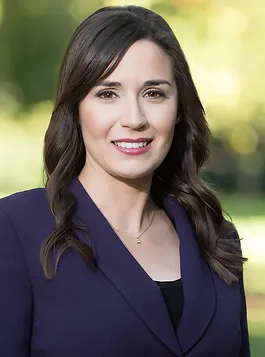Attorney Services
Attorneys Serving Vancouver WA

David A. Kurtz
A Will distributes property as you intend. Your named Personal Representative may act without court intervention, which reduces costs and saves your beneficiaries from burdensome court proceedings. A Will may reduce conflict and litigation between beneficiaries because you have clearly written down your wishes.
- Will
- Powers of Attorney
- Health Care Directive
- Revocable Living Trusts
- Special Needs Trust
- Trust for Minors
- Credit Shelter Trust
- Community Property Agreements
- Co-habitation Agreement
- Probate is the legal process of transferring the title of the deceased’s assets to his/her beneficiaries as directed by his/her Last Will & Testament. However, some assets do not transfer via probate.
- Intestate Administration is similar to a probate except that, with intestacy, the deceased failed to leave a valid Last Will & Testament.
- Small Estate Affidavit for estates without real estate and valued under $100,000.
- Administration of Revocable Living Trust – When the deceased has a Revocable Living Trust (RLT), probate is avoided on assets titled in the RLT’s name because the RLT owns the assets.
- Creditors Claims arise if the deceased had debts prior to their death. The estate may notify creditors to shorten the time for creditors to file claims.
- Some assets are distributed outside of a Probate or Trust and should be identified as such.
- Purchase and Sale Agreements
- Earnest Money Agreements
- Real Estate Contracts
- Covenants
- Easements
- Promissory Notes for Real Property
- Escrow Instructions
- Closing Statements
- Real Estate Closings
- Deeds
- Bill of Sale for Mobile Home
David joined Kurtz & Paradis in April 2018 after practicing at Jackson, Jackson & Kurtz, Inc. in Battle Ground, WA, from 2013 to 2018. As an undergraduate, he attended Washington State University. David attended and graduated from Gonzaga University School of Law and was admitted to the Washington State Bar Association in October 2013. While in law school, David worked at the University’s legal aid clinic, which provides legal services for low-income people and non-profit organizations. David primarily focuses on estate planning, probate, trust administration, estate and probate litigation, and real estate transactions. In his free time, David enjoys exercising, reading, and hiking.
Approach
David prides himself on working hard to help his clients find the best, most cost-effective, and practical solutions to their legal issues.
Current Memberships
- Washington State Bar Association
- Clark County Bar Association (CCBA)
- Greater Vancouver Chamber of Commerce

Danielle Paradis
- Division of Debts & Assets
- Spousal Support
- Separation Contracts
- Child Custody
- Parenting Plans
- Relocation
- Child Support
- Modifications
- Child Custody
- Parenting Plans
- Relocation
- Child Support
- Modifications
Danielle Paradis
Danielle is native to the Pacific Northwest. She grew up in the Rogue Valley of Southern Oregon and obtained her Bachelor of Science in Chemistry from Southern Oregon University. Danielle graduated from Gonzaga University School of Law and was admitted to the Washington State Bar Association in January 2014. She worked for a year as an Associate Attorney at a small firm in Vancouver, WA, focusing on family law, before opening her local practice.
Approach
Danielle devotes herself to providing each client with the information he or she needs to decide if collaboration, mediation, or litigation suits him or her. From there, Danielle works with her clients to help them through the process with compassion and understanding. Separation is complex, and she helps people find a new path.
Current Memberships
- Washington State Bar Association
- Clark County Bar Association (CCBA)
- CCBA Family Law Section
- Greater Vancouver Chamber of Commerce
- Collaborative Professionals of Washington
- Washington Women Lawyers – Secretary, Mt. St. Helens Chapter
Paths for Resolution in Family Law
Litigation
Formal legal process with pleadings, discovery, hearings, and sometimes trial. Specialist orexperts may be used by agreement or to support a parties position. A Commissioner makes decisions during the temporary order phase and a judge makes the final decision if the parties do not reach agreement prior to trial.
Arbitration
A third party neutral with legal training makes the decisions based on the evidence presented by the parties and allowed for submission within the rules of civil procedure. It is often a streamlined process compared to litigation and offers more privacy than litigation.
Mediation
A neutral third party helps the parties resolve their separation or divorce by agreement. The mediator cannot give legal advice. An individual may use an attorney or other professionals to prepare themselves for mediation, but the mediation sessions are typically just the mediator and the parties.
Cooperative Mediation
Attorneys are fulling involved in the resolution process to help the parties reach agreements. Other professionals such as mediators, child specialist, and financial specialist may be used by agreement or to support a parties view on an issue. Depending on the parties and attorneys this process may mirror litigation or collaborative or somewhere in between.
Collaborative Mediation
The process focuses on a positive outcome for all parties through joint problem solving. Each party has a specially trained lawyer to help reach an out of court agreement. The parties ma also utilize other collaborative professionals such as coaches, child specialist, and financial specialist. There is an agreement not to go to Court. This offers privacy and often reduces legal fees and length of the divorce process compared to litigation.
Divorce, separation of unmarried couples, and modifications to parenting plans and child support can be costly. I offer several options so clients can choose the level of help they need.
Full Representation
The attorney gathers facts, researches the law, advises the client, drafts correspondence and/or court documents (pleadings), requests and responds to discovery (Interrogatories and Request for Production of Documents, Subpoenas, Depositions, etc.), negotiates, and represents the client in court proceedings, arbitration, mediation, or collaborative mediation. (hourly)
Limited Representation
Limited Scope
The attorney represents the client in collaborative cases, and negotiations, or prepares him/her for mediation. This may involve advising the client on what documents need to be gathered, legal authority, and preparing documents related to settlement or agreed orders. (hourly)
Document Preparation
- The client represents him/herself, and the attorney drafts documents or orders based on the information the client provides. (flat fee and hourly for revisions) This may occur when the person is considering filing a Petition for Divorce, Paternity, or Parenting & Support of a child. The client wants to hire an attorney so important aspects like jurisdiction and requests for relief such as child support, spousal support, tax exemptions, etc. are not overlooked. In some situations, this is time sensitive because the client needs to establish jurisdiction if one party left the state; child support or spousal support; or suspects the other party is selling, transferring, or concealing assets in anticipation of divorce.
- A person may also want Document Preparation when he or she is actively involved in mediation or litigation (motion, discovery, settlement conference, or trial). The attorney will draft documents and advise the client on areas where information may be lacking, or irrelevant information is being provided that may cloud the legal issues.
- Another instance when a person may want document preparation is if the parties are in agreement on the terms of the temporary or final orders and want an attorney to draft the orders on behalf of one party. Note: I will only represent one party. The other party has the right to review the documents and seek legal advice of their own.
Document Review
The client represents him/herself, and the attorney reviews documents or orders the client has drafted or orders drafted by the other party or his/her attorney. (hourly)
Coaching
Often times a party representing themselves feels overwhelmed and needs information about the litigation or mediation process. I meet with clients before or during the legal proceedings to help them develop an approach for litigation or mediation. For instance, we may discuss what reasonable terms are for a parenting plan, child support, or how assets and debts might be divided between the party’s based on the facts the client provides about the case. (hourly)

